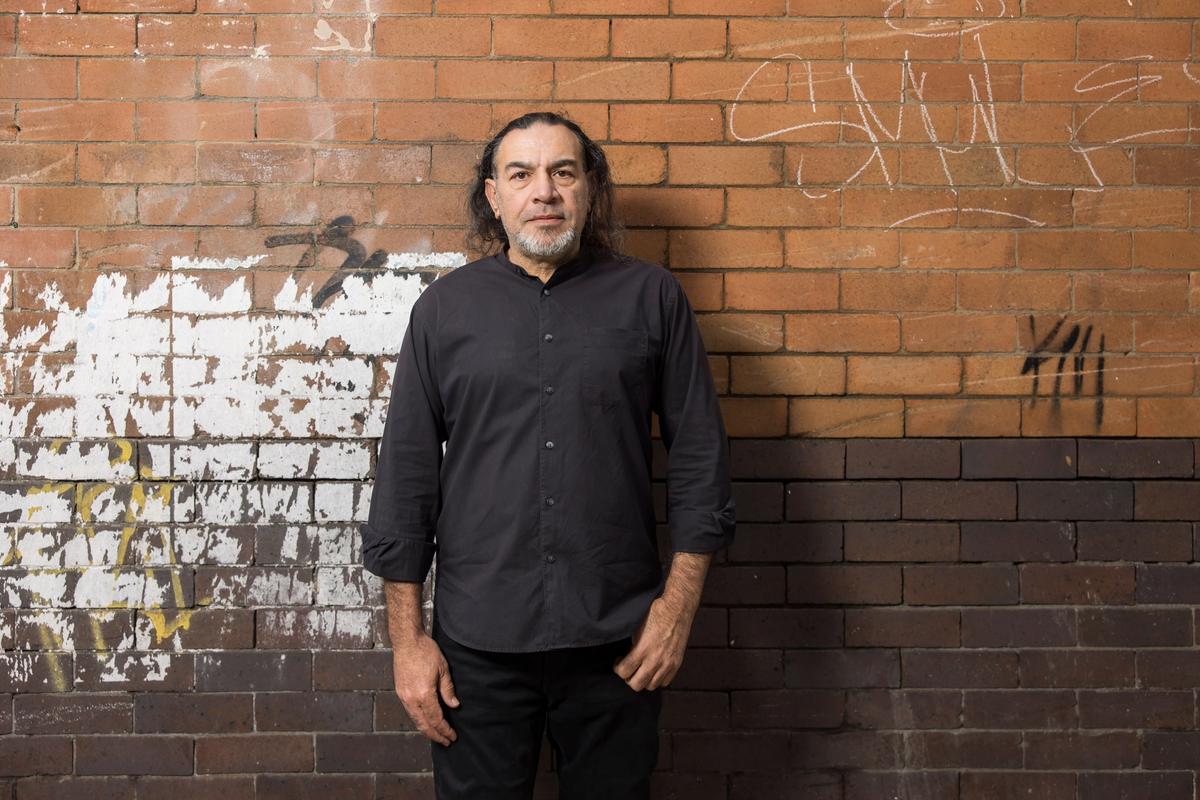Creative Australia has sensationally reinstated Khaled Sabsabi, its official representative for the 2026 Venice Biennale, in the wake of a damning external review of governance failures surrounding the original selection process.
Creative Australia also publicly apologised to Sabsabi and his Biennale project curator Michael Dagostino, admitting that by rescinding its decision it had caused much hurt.
The reappointment of the two western Sydney artists means they can now begin working in earnest towards their project.
The two men have been in limbo since February when Creative Australia withdrew its appointment, although they had taken steps to raise funds independently in order to take their project to Venice albeit at a different venue.
Their appointment as the 2026 Venice Biennale team had been announced amid fanfare on 7 February.
Amid arts community fury over what was widely condemned as Creative Australia’s inept handling of the issue, the arts body appointed the governance advisory firm Blackhall & Pearl to examine its internal processes and make recommendations.
The report, released today at the same time as the reinstatement of Sabsabi and Dagostino, was vocal on the subject of risk management, or rather the lack of it.
It found that the social and political context surrounding the selection for the 2026 Biennale was profoundly different from when Creative Australia had made its selection of Archie Moore for the 2024 event.
The report outlined a summary of some of the antisemitic and Islamophobic events that took place in Australia at the time of Sabsabi’s selection for Venice, episodes which ultimately made the choice controversial simply because the artist happens to hail from a Middle Eastern background.
“While no formal assessment was undertaken, it is clear that there was a general
awareness within Creative Australia, among those with knowledge of the selected artistic team, that the decision had the potential to be controversial,” the report stated.
“The panel heard that, at the time, the decision was described as ‘bold’ or ‘courageous’. The source of potential controversy was seen to lie in the fact of selecting any artist with heritage connected to the Middle East at a time when conflict in that region was so emotive and polarising, rather than because of the proposed nature of the work to be undertaken at the 2026 Venice Biennale.”
The report’s authors found that Creative Australia was ill-prepared for controversy and was taken by surprise when it came.
“If there is a dominant theme in the findings of this report, it is that much pain, anger, damage and anxiety could have been avoided if Creative Australia had been appropriately prepared for what, inevitably, was going to be a controversial decision—not controversial for any reason caused by the artist or curator, or any collection or particular piece of work, but controversial because of the broader fraught environment within which the decision was being made,” the authors wrote.
“The failure of Creative Australia to be adequately prepared is not the fault of any one person or group of individuals. In the panel’s opinion, there were multiple oversights, misunderstandings, missteps and assumptions made that contributed, and there is no single causal factor that resulted in the outcome.”
Sabsabi’s appointment for Venice turned ugly when two of his early works emerged within days of his appointment. Press reports insinuated the works were supportive of terrorism, although commentators said the works were misinterpreted by those who had jumped to conclusions, and the artist has repeatedly stated his revulsion of racial hatred of all kinds.
Influential supporters also backed Sabsabi for his good character.
In its statement today, the Australia Council apologised to Sabsabi and Dagostino. The acting board chair of Creative Australia, Wesley Enoch, said: “The Blackhall & Pearl review has shone a valuable light on our processes, and we have learned from that and taken a path that reflects the necessary evaluations and risk analysis recommended by the reviewers. The board has considered and reflected deeply on all relevant issues to find a path forward. The board is now of the view that proceeding with the artistic team, Khaled Sabsabi and Michael Dagostino represents the preferred outcome. The board’s decision reflects its commitment to the important principle of freedom of artistic expression, supported by a strong, transparent, and accountable governance framework.
“The decision the Board took in February has weighed heavily on many people, most particularly the artistic team and for that we are sorry. We want to be clear that the decision was not a reflection on the artistic team and their remarkable body of work.
“We thank Khaled and Michael for their readiness to work with us, and we are delighted to work with them to realise their vision for the Australia Pavilion in 2026.”
The Australian philanthropist, Simon Mordant, was announced as the Global Ambassador and Advocate in support of Sabsabi and Dagostino’s project for Venice.


